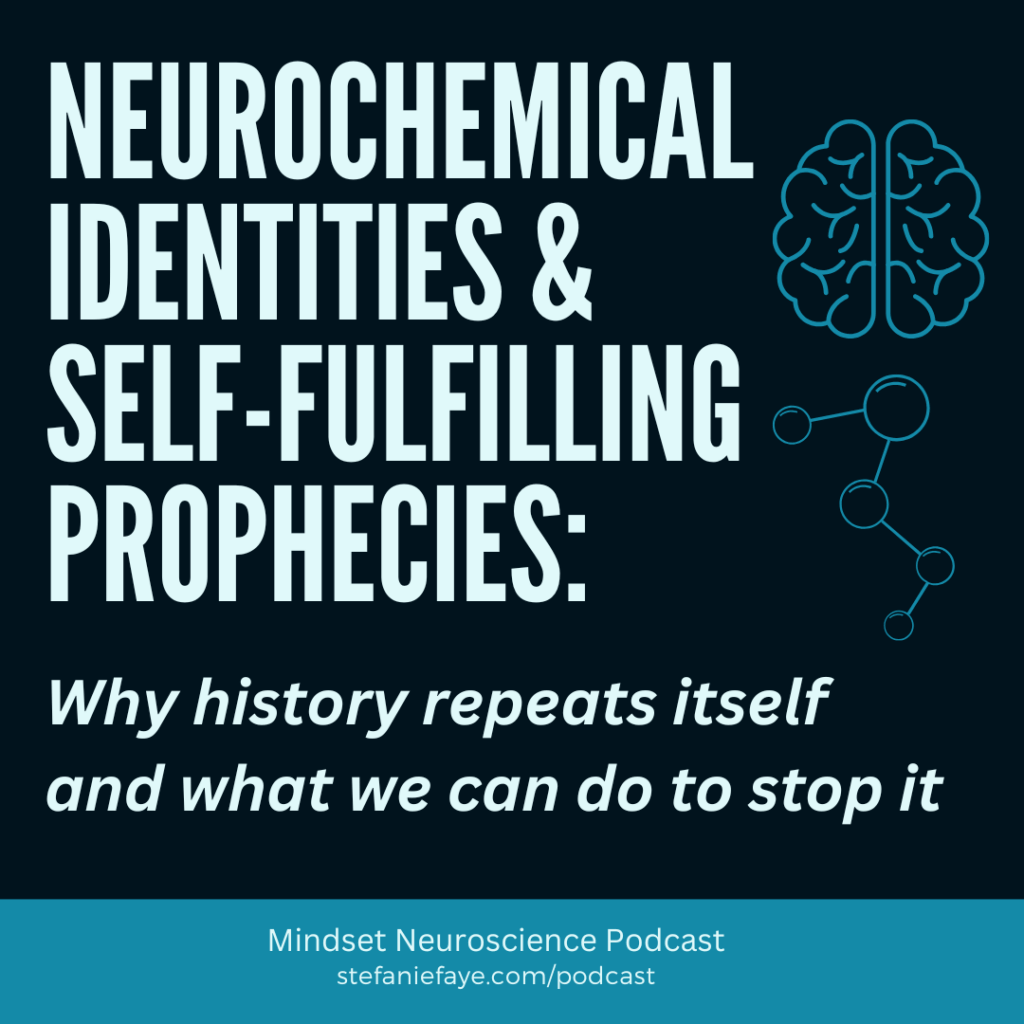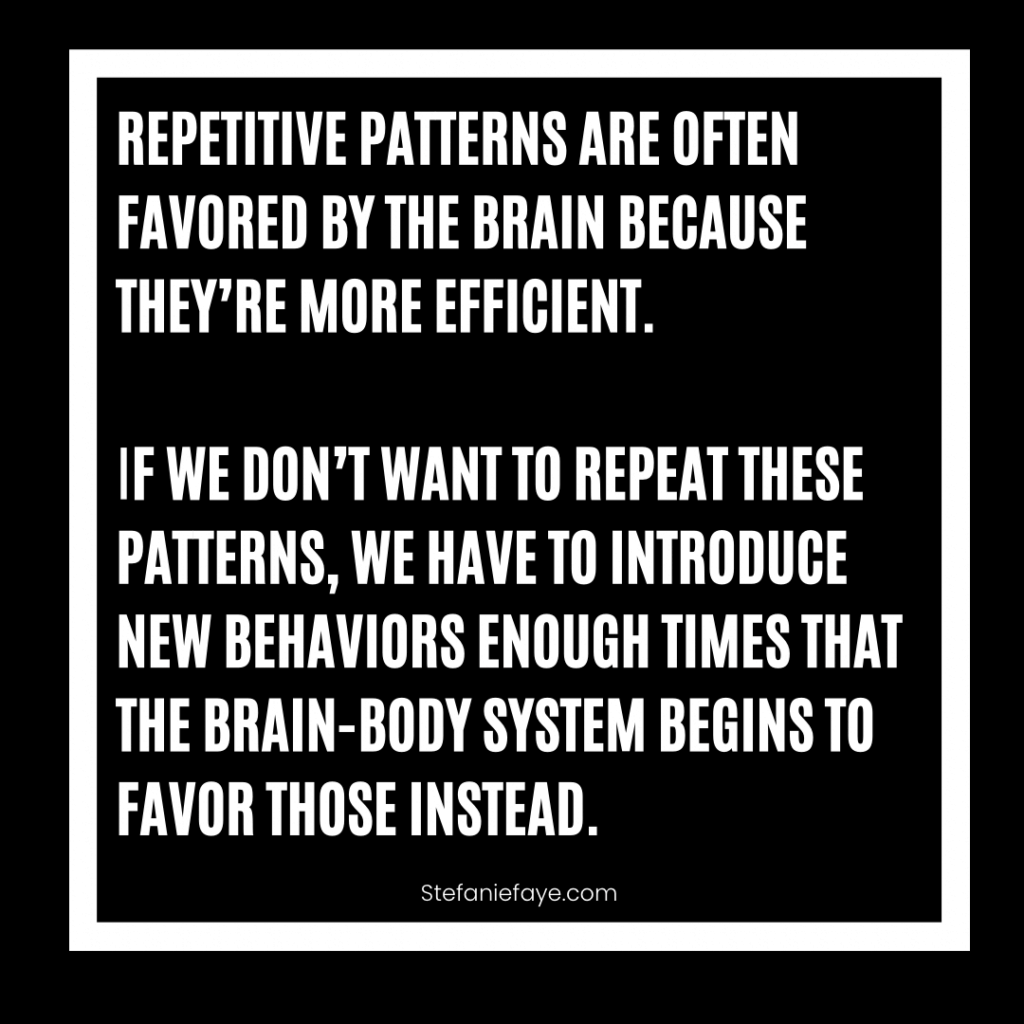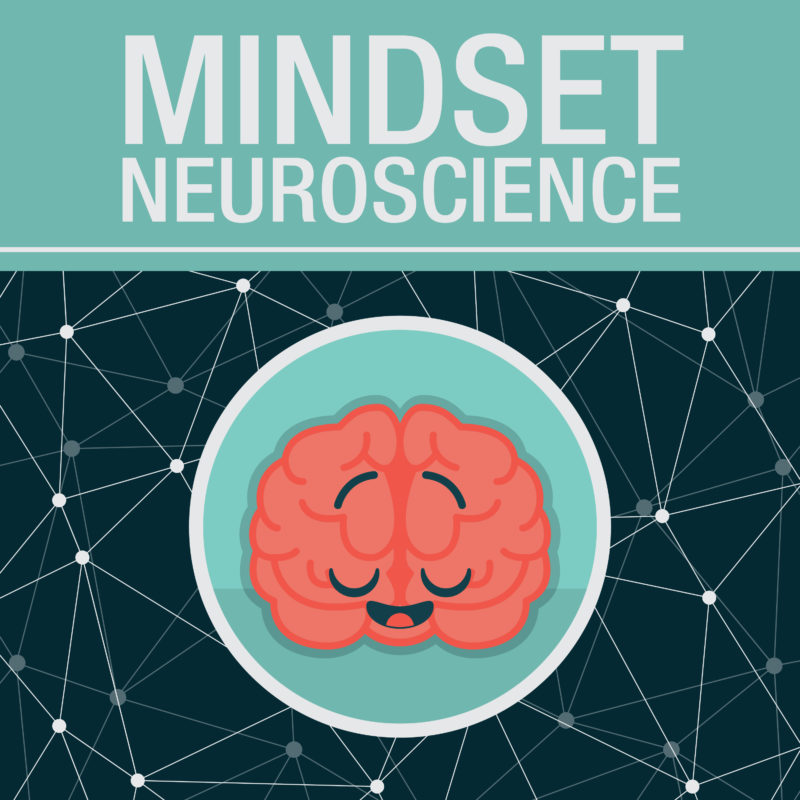As we approach the holidays and important moments in history… are there social or family dynamics that feel like repeats or remnants from the past?

Do you sometimes get the feeling that nothing ever really changes?
Repeating history isn’t necessarily a bad thing… If we’re repeating the parts of it we like.
A part of our growth and learning is that we take what has happened and we try to get better at having more of what we want and less of what we don’t want. If we are finding that we have similar patterns that we don’t like and these patterns keep repeating, then we may want to think about what it is that keeps us in the same cycles.
It might be relationship patterns, arguments or conversations that you have over and over again with the same people that seem to go nowhere or make things worse. Or it might be habits that you want to improve, but you just can’t seem to.
Listen to this as a mini podcast episode on:
What can keep us in repetitive cycles has to do with neurochemical patterns and identities
These are sensory-motor patterns and sequences of micro-movements and adjustments that have been established in terms of our brain activity and neural circuits.
These patterns and cycles can feel very familiar. Familiarity is often favored by the brain body system because it’s efficient. It’s already figured out the resources, behaviors, patterns, and algorithms associated with very repetitive things that happen.
Unfortunately, if these things are not things we want to keep repeating, we must introduce new behaviors enough times that the brain body system begins to favor those instead.

The first step to disrupting these, however, is awareness.
Without knowing we are in these patterns, and without reflecting on what it is, that keeps us in them, we don’t activate the brain systems that that are needed to make alternative choices and to perceive things in new ways.
What are patterns and cycles that you see happening in society, your communities, family, and your own life that you would love to see disrupted or improved?
Simply starting with that first step: of noticing repetitive cycles that are not leading to new results is a powerful first part of the process to disrupt them.
"When we say that we are aware of a certain piece of information, what we mean is just this: the information has entered into a specific storage area that makes it available to the rest of the brain"
-Stanislas Dehaene, Consciousness and the brain
We’ve all heard the saying that the same level of consciousness that thinks of a problem is not going to be the same one that solves it. Noticing that a pattern is repeating and becoming more aware of the sensations and behaviors associated with it will help light up new brain circuits that bring you into a new level of consciousness. noticing our behaviors puts them into what neuroscientist Stanislas Dehaene calls our brain's global conscious workspace .
This workspace is where we have the ability to improve our mastery and control, where we activate neural circuits that make us better humans. We begin to access the precise features of the human brain that move us to adapt, evolve, improve and innovate.
One way we can access this global conscious workspace is by becoming aware of our patterns.
Reflection: Ask yourself what would be a new but possibly unfamiliar feeling that could happen if this unwanted pattern no longer happened ?
Getting in touch with that and playing with it as a possibility helps activate coordinated systems in the brain that may help you notice new things and spark, new microbe behaviors that can help change a pattern.
- What repetitive pattern could you notice today that you would love to feel differently about?
- As you think about it, do you get any type of sensation or inspiration for a new behavior you can do?
- Think specifically about what kind of new movement your hands could do, and what kind of new movements your voice muscles could do in terms of words and tone
- Reflect on how that new movement of your hand could potentially disrupt a pattern and keep you from repeating history in ways you don’t want?
Learn more about the neuroscience of patterns, identities how we disrupt them in today's episode.
I also cover this topic in this video: the science of self-fulfilling prophecies and why we repeat relationship habits
NEW MINI-COURSE!!!!
Regulate Nervous Systems, Change the World:
Super-Regulators Mini Course: learn the 3 key pillars of self-regulation neuroscience. So excited to share this with you!
Get it now for the introductory price of $37!
This is a great gift for anyone in your life who is helping others and who could use extra tools for helping themselves and others regulate their emotions and nervous systems using a concrete, science-supported, step-by-step framework
LEARN MORE AND ACCESS COURSE HERE

